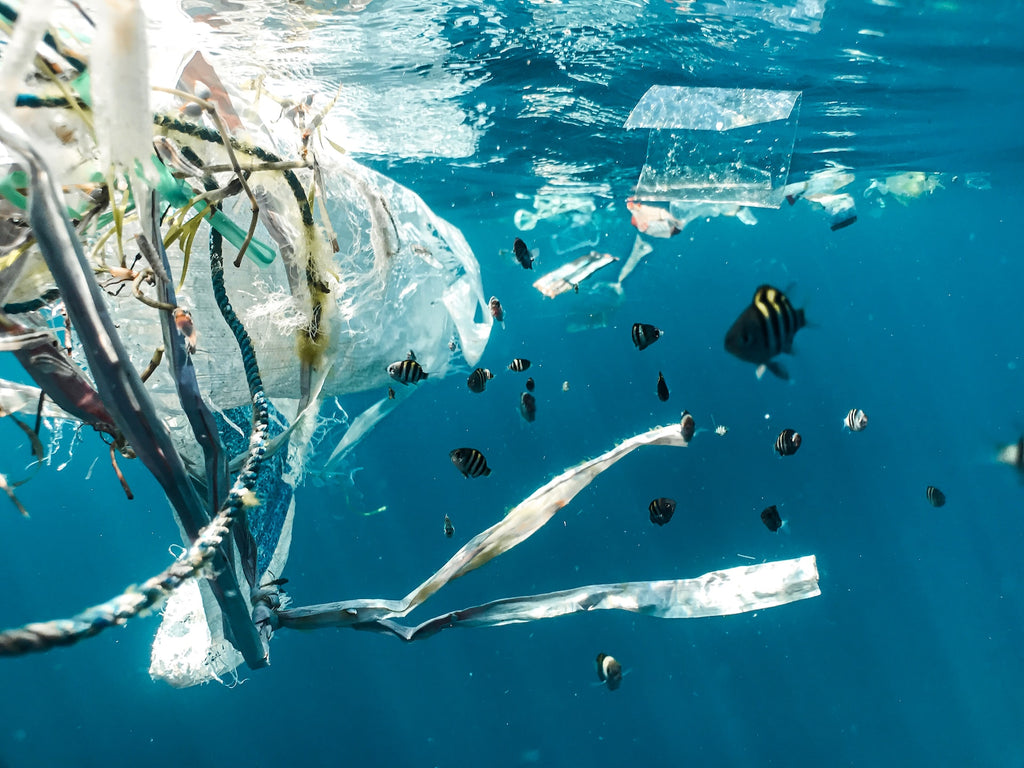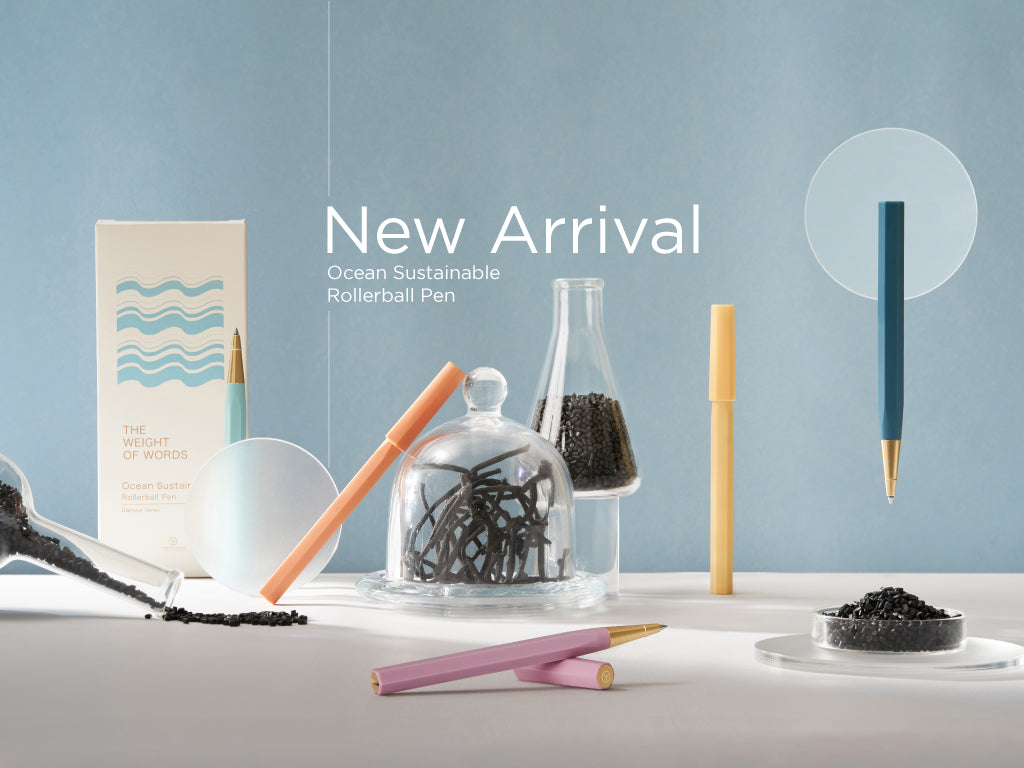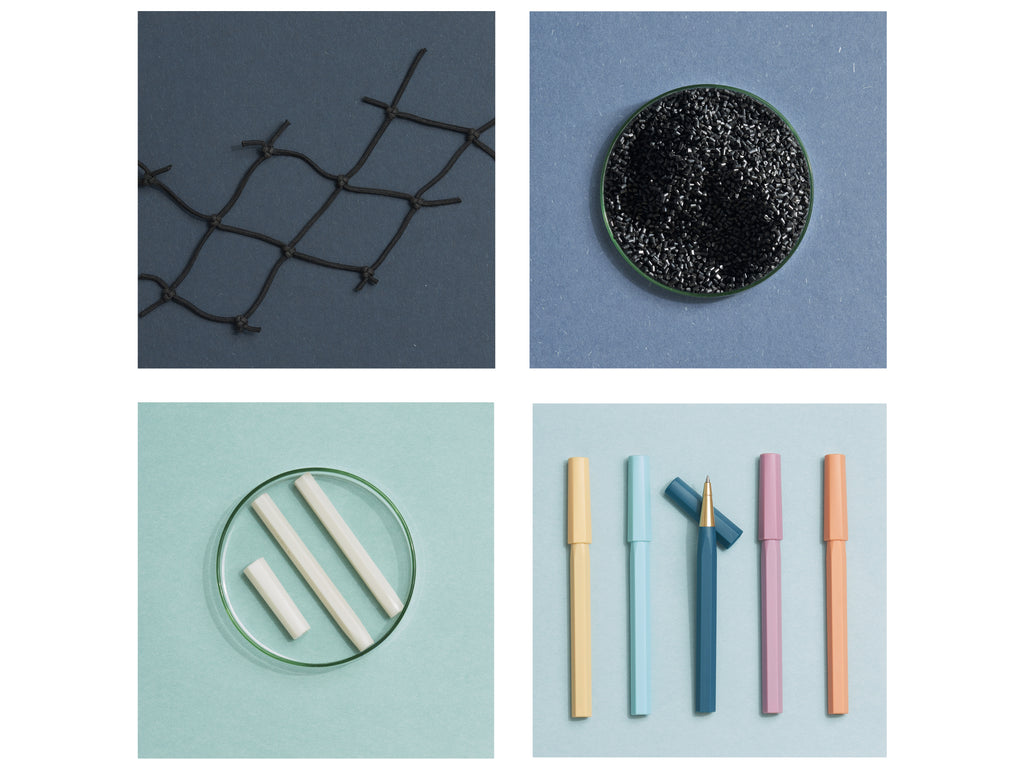Recycled Ocean Plastic Products: Reducing Environmental Impact, and Achieving Sustainability through Design for Multiple Benefit.

In recent years, more and more products are being made from ocean waste, like glasses, clothing, water bottles, bath products, and even pens. Many companies are now focusing on sustainable design when creating their products, which brings recycled ocean plastic products. These environmental issues may seem distant from our daily lives, but they are related, including the food we eat. Taiwanese stationery brand YSTUDIO embodies the spirit of valuing and cherishing objects. Not only do we craft our pens from eco-friendly copper, but we've also begun incorporating ocean waste into their sustainable designs. This demonstrates our dedication as a Taiwanese brand. Now, let's explore what ocean waste is and discover ways to address it.
Definition of Marine Debris and Its Severity of Impact?
Marine debris, also known as ocean waste, the term "marine debris" refers to garbage intentionally or unintentionally produced by humans that ultimately ends up in the ocean. These discarded items can be things like bottles and fabrics, which float on the ocean's surface, or larger items like fishing nets and gear that sink to the ocean floor. These types of marine debris cause significant problems for the marine environment.
According to estimates from the United Nations Environment Programme (UNEP), between 10 to 20 million tons of plastic enter the ocean each year. This leads to around $13 billion (approximately 400 billion New Taiwan Dollars) in losses for marine ecosystems. As marine debris breaks down, it releases chemicals and microplastics that harm marine life. These harmful substances can even affect human health as they move up the food chain.

While beach cleanups help reduce marine debris, larger items like abandoned fishing gear and nets present significant challenges. These items often sink to the ocean floor, making retrieval difficult and contributing to long-term issues. Abandoned nets can harm marine life by entangling sea turtles and fish, leading to injuries and deaths. They can also pose risks to ships by getting caught in propellers, causing accidents. When fishing gear breaks down into tiny plastic particles, it harms the marine ecosystem. Consequently, many companies are participating in ongoing efforts to recycle marine waste and are even dedicated to innovating various products crafted from recycled marine debris, the products also been known as recycled ocean plastic products.
Challenges Faced by Recycled Ocean Plastic Products?
Apart from reducing the creation of marine pollution, turning ocean waste into useful products is an eco-friendly way to deal with existing marine debris. Integrating sustainable design into recycled ocean plastic products development has great potential for a sustainable future. However, the path of ocean waste recycling products is filled with challenges, from sourcing materials to getting people to buy them. Here, we'll discuss the obstacles that make ocean waste recycling a tough journey:
-
Difficulty in Ocean Waste Retrieval
Retrieving ocean waste is more challenging than dealing with land-based garbage. Each fishing expedition to collect ocean waste consumes a significant amount of costly fuel. Moreover, factors related to weather conditions and environmental variables must be taken into account. For instance, the presence of severe storms, high waves, significant tidal variations, turbid water in muddy areas, or the displacement of ocean waste due to ocean currents require frequent adjustments. These factors increase the difficulty of ocean waste retrieval. Coupled with the rapid rate at which humans generate garbage, even diligent efforts in ocean waste retrieval can seem never-ending and may lead to a sense of helplessness
-
Challenges in Recycling Ocean Waste
Even when we manage to collect ocean waste, it's not always easy to turn it into recycled ocean waste products. Ocean waste often gets dirty, which complicates the recycling process and increases costs compared to regular household recycling, dissuading many companies from participating.
-
Difficulty in Getting People to Buy Recycled Ocean Waste Products
Some people are hesitant to buy products made from "garbage" as they have concerns about the source of the materials. Also, recycled ocean plastic products can vary in appearance and quality due to differences in the recycled materials used. Additionally, due to the higher costs associated with marine waste retrieval and recycling, the prices of recycled marine waste products cannot be low. These factors can discourage the public from adopting recycled marine waste products, making it challenging to promote the concept of sustainable design.

Ocean Sustainable Rollerball Pen: A Better Pick for Sustainable Writing
YSTUDIO encourages people to value the warmth of writing and the weight of words. We strive to create stationery that can be part of our lives. The body of Ocean Sustainable Rollerball Pen is made from recycled nylon, sourced from discarded fishing nets in Taiwan, the inner tube is crafted from the brand's classic eco-friendly copper material. This design aims to lessen the impact on both people and the environment.
The serene blue pen body harmonizes with its oceanic source, serving as a constant visual reminder of our brand's unwavering dedication to environmental preservation. Every stroke of the pen is not just a simple act of writing but also a heartfelt expression of gratitude and reverence for nature.
The Ocean Sustainable Rollerball Pen is made from recycled nylon sourced from discarded fishing nets in Taiwan. It has received certifications such as EU RoHS and REACH, and it complies with the GRS (Global Recycled Standard). Due to its origin as recycled ocean plastic products, you may notice minor spots on the pen's surface caused by trace amounts of marine impurities. This is a natural part of the recycling process, confirming its connection to ocean waste.

The Ocean Sustainable Rollerball Pen symbolizes our dedication to a cleaner ocean. We aim to preserve the beauty of marine life for future generations through recycling ocean plastic products.
Read More >>
How does plastic get into the ocean? Pathway of marine pollution

